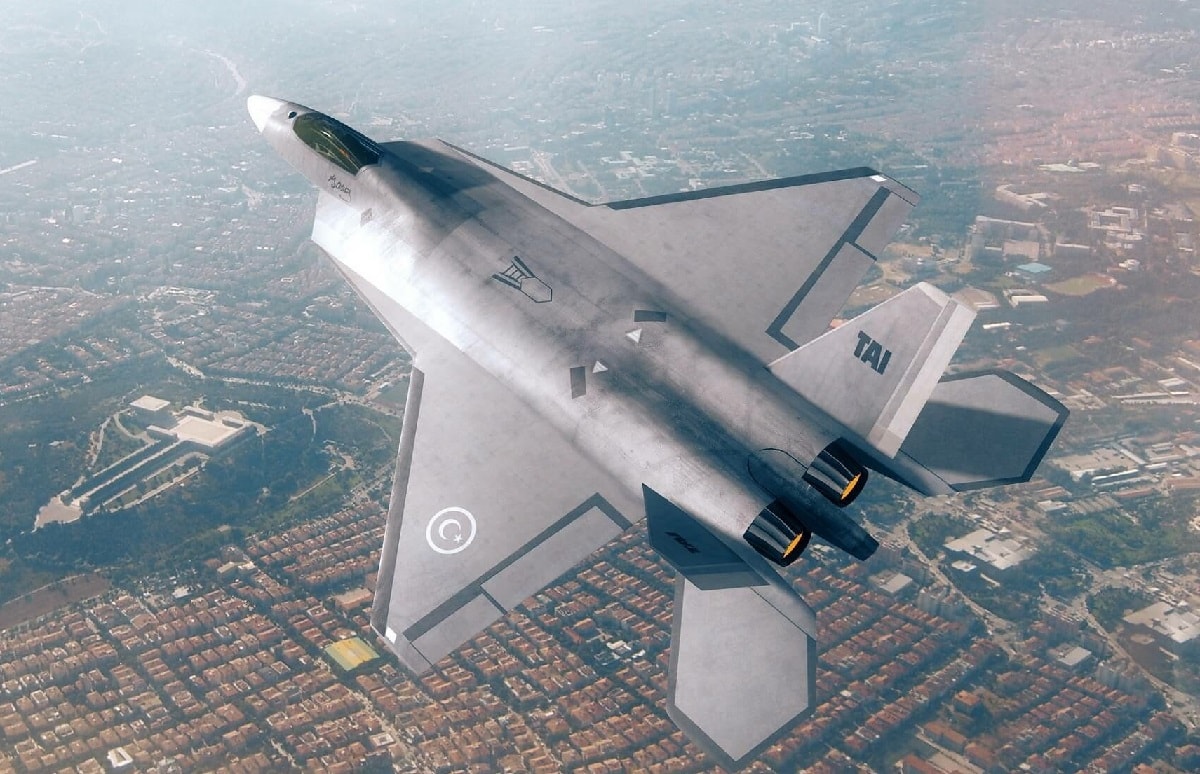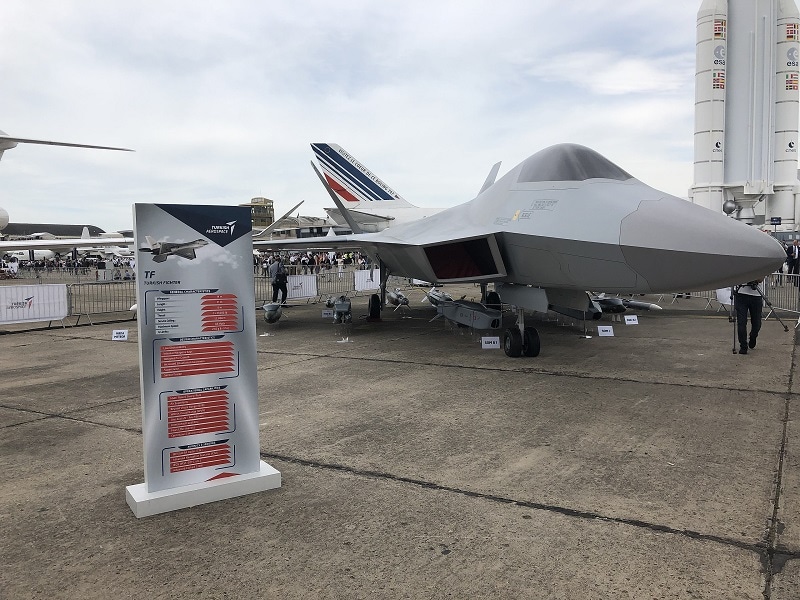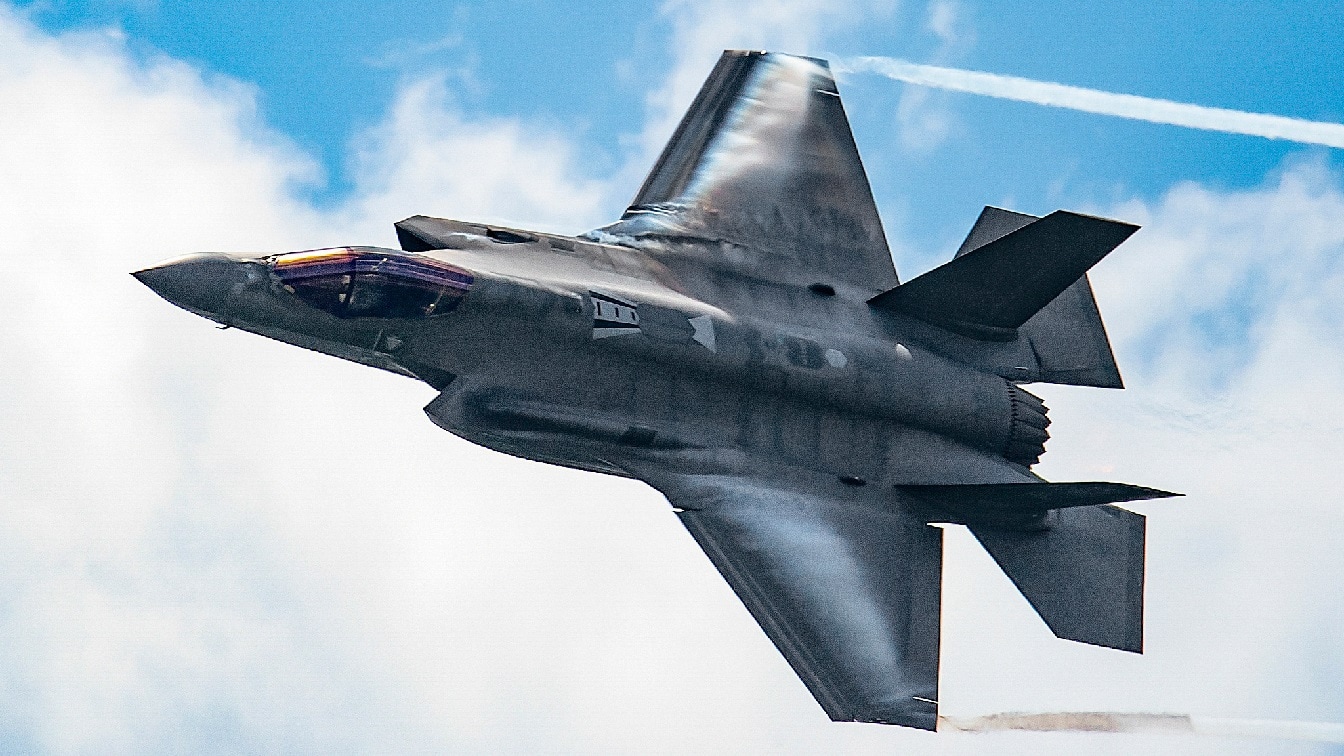Turkey Sets Ambitious Goal of Developing F-35 Rival by Next Year: Development of the Lockheed Martin F-35 Joint Strike Fighter began in 1997 and it wasn’t until nine years after in late 2006 that the multirole fifth-generation stealth aircraft took its maiden flight. The F-35 Lightning II remains the most capable and advanced aircraft built to date, yet Turkey’s President Recep Tayyip Erdoğan has vowed that his nation could produce an aircraft to rival the F-35 and have it in service by the end of next year.
Last week Erdoğan took to social media and posted, “Now it’s time for our National Combat Aircraft, one of the most important defense industry projects of our country…”
While he didn’t specify the capabilities of the National Combat Aircraft, the Turkish leader has made it clear that it would seek to find an F-35 alternative after it was expelled from the U.S.-led Joint Strike Fighter program in 2018 after Ankara said it would move forward with the acquisition of the Russian-built S-400 “Triumf” missile defense system. NATO leaders as well as the Trump administration warned Turkey that the platforms were not compatible, and expressed concerns that Turkey’s adoption of both systems would compromise the security of the F-35.
In addition to plans to purchase 100 F-35 fighter jets, Turkey was a program supply chain partner.
As the Greek City Times reported this week, the exclusion of Turkey from the co-production of the F-35, and the embargo on military equipment by many countries, including NATO allies, has created a serious problem for the nation’s armaments programs. President Erdoğan has officially acknowledged publicly that Turkey is facing a number of serious issues due to the arms embargo, yet he has also said Turkey could build its own weapon systems.
Turkey’s F-35 in the Works?
The TAI T-FX, a twin-engine all-weather air superiority fighter (see pictures below), is currently in development with the Turkish Aerospace Industries (TAI) while BAE Systems is a key sub-contractor. It had been previously announced that the aircraft would make its first flight in 2025 and would enter service by the 2030s.
With 2023 being a pre-election year, the Turkish president may have simply used this as a way to show that his nation should be viewed as more than a regional power. Promising a national fighter jet could certainly bolster such claims. However, many analysts have said that there is really not enough time – nor that Ankara even possesses the means – for Turkey to proceed with the planning and production of its own F-35-like fighter. Even the goal of a first flight in 2025 has been seen as ambitious.
The fighter is just one of the new efforts being promoted by Erdoğan to start a new year. It was just last month that the Turkish president said that the country’s internationally recognized name would be changed from “Turkey” to “Turkiye” to better represent and express the culture, civilization, and values of the Turkish nation in the best way. Since the dissolution of the Ottoman Empire, the nation has been known as Turkey globally, but in the Turkish language, it has always been Turkiye. And as the old song goes, “Istanbul not Constantinople,” so why not Turkiye?

TF-X Program Image Credit: TAI

TF-X Mock-up at Paris Air Show 2019
Peter Suciu is a Michigan-based writer who has contributed to more than four dozen magazines, newspapers and websites. He regularly writes about military small arms, and is the author of several books on military headgear including A Gallery of Military Headdress, which is available on Amazon.com.

